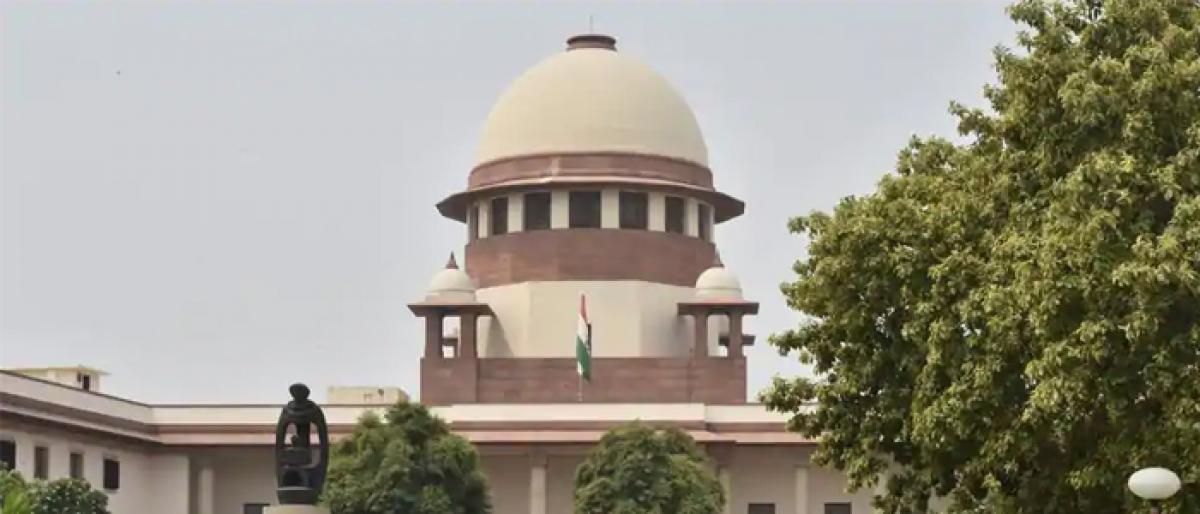criminalisation of politics: Father, son fight it out in SC

A father and son were at loggerheads on Tuesday in the Supreme Court on the issue of disqualification of a lawmaker facing criminal charges, with the former saying the matter fell in the domain of the legislature and the latter insisting that the court should issue directions in this regard to the poll panel
New Delhi: A father and son were at loggerheads on Tuesday in the Supreme Court on the issue of disqualification of a lawmaker facing criminal charges, with the former saying the matter fell in the domain of the legislature and the latter insisting that the court should issue directions in this regard to the poll panel.
A five-judge constitution bench headed by Chief Justice Dipak Misra, which is hearing PIL petitions seeking to bar persons facing serious criminal charges from electoral politics, heard the arguments by Attorney General K K Venugopal, representing the Centre, and his son and senior lawyer Krishnan Venugopal and senior advocate Dinesh Dwivedi appearing for the petitioners.
Senior advocate Krishnan Venugopal, who is fighting the case against his father, suggested that to deal with the issue of decriminalising politics, either a law may be passed; or, the court can direct the poll panel to ask political parties not to give tickets to persons with criminal records.
He also suggested that the fixed election symbol of a national or state level recognised political parties may be cancelled if they gave tickets to such candidates.
He also said that the EC can ask the political parties to insert by-laws in their constitutions that they will not allow persons facing trial in cases, where minimum sentence prescribed is five years jail term, to fight elections on their tickets. It would serve the "larger good of society", he added.
The Attorney General vehemently opposed the submissions of his son and Dinesh Dwivedi, saying they were trying to achieve a "particular result indirectly" which they cannot achieve "directly".
"The question is whether it is the matter to be dealt by the legislature or it can be dealt by the judiciary... can the five judges sitting in the constitution bench decide the disqualification," the top law officer said.
He said that considering the concept of separation of power, the issue of disqualification of lawmakers should not be dealt with by the judiciary. When the AG asked: "Can the judiciary decide the disqualification aspect", the bench said:
"We have no doubt in our mind that we cannot make the law." "Everybody understands that (doctrine of separation of powers among Executive, Legislature and Judiciary) we cannot direct Parliament to make a law.
The question is what can we do to contain the rot," the top court said. When the bench said the political parties shall disclose the facts regarding the involvement of candidates in criminal cases, the AG said the background of a candidate becomes relevant only at the time of elections.
He also referred to the bitter background in which elections were being fought and asked the court not to remain oblivious of the facts that persons are also framed in cases ahead of polls.
"On the eve of elections, Your Lordships would find that cases are filed against political opponents," he said, adding that judicial intervention would create a big problem.
Why cannot the court exhort Parliament to make the law and for the interregnum period, it can pass some directions to the election commission to deal with the issue of criminalisation of politics, the bench asked.

